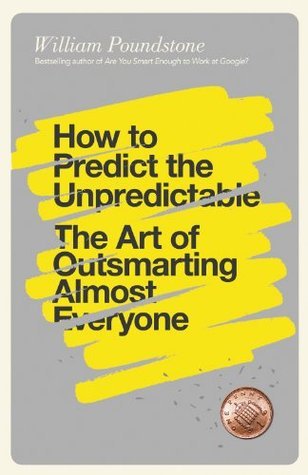What do you think?
Rate this book


304 pages, Paperback
First published April 9, 2014

Shannon's and Hagelbarger's devices were arguably the first to use "cookies" - archives of past human choices that are employed to predict future choices.
One problem with sports betting systems is that anyone who looks hard enough for a pattern tends to find one. It might be that the Denver Broncos always won on odd-numbered days in February when playing teams named after animals. Analytics is good at finding such patterns. It's not so good at saying whther you should believe in them.